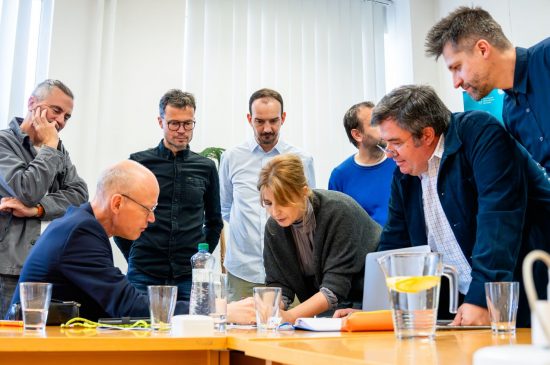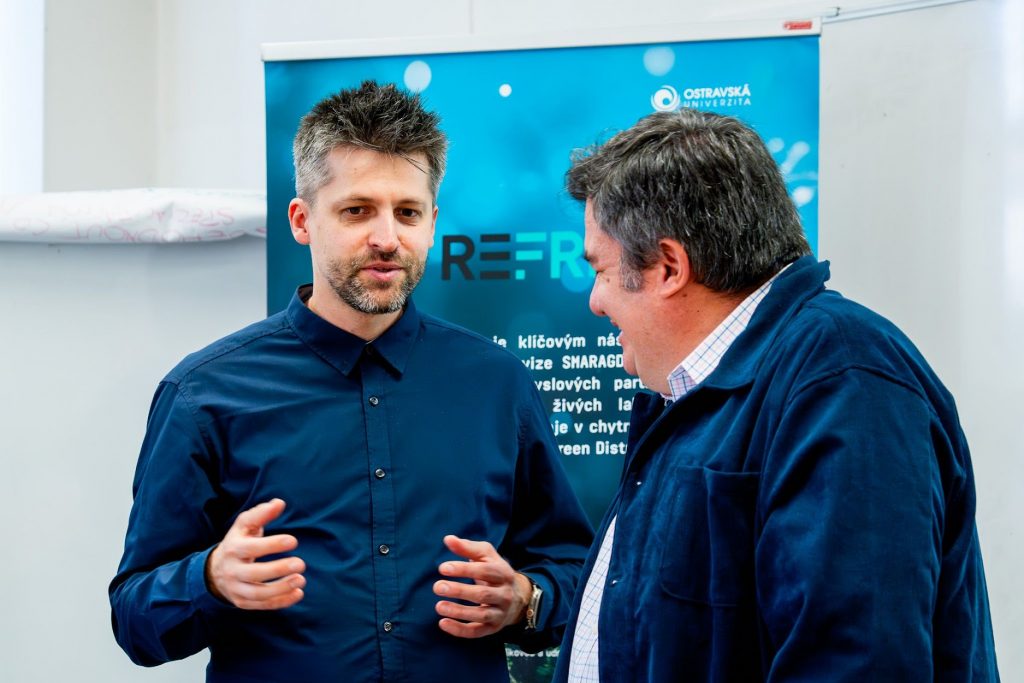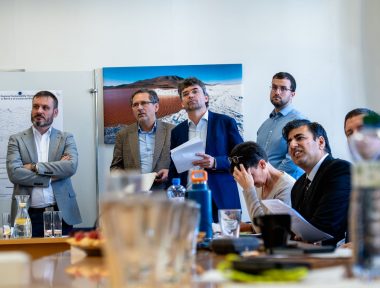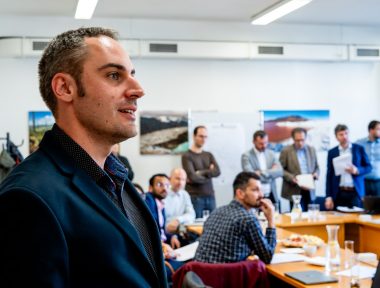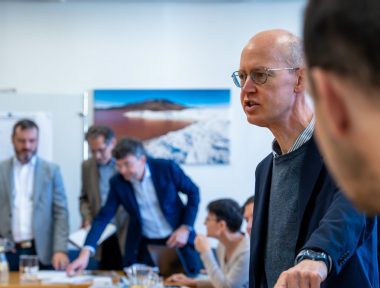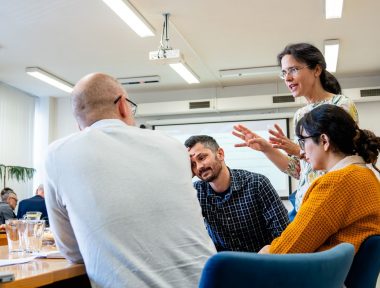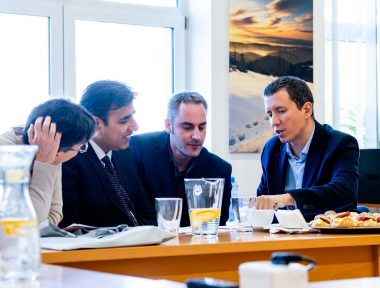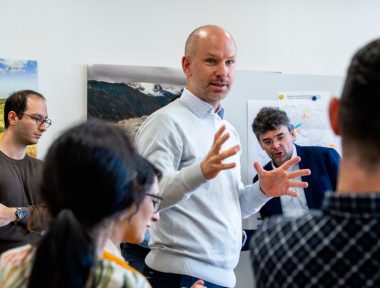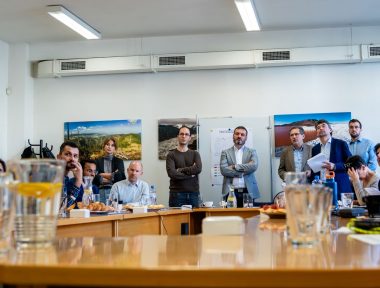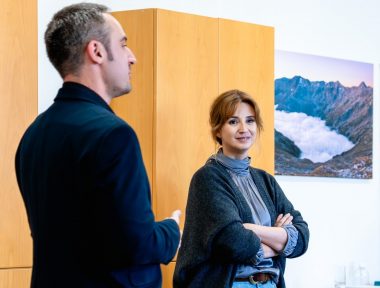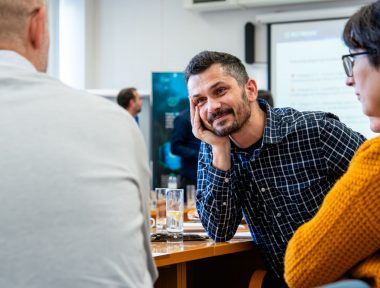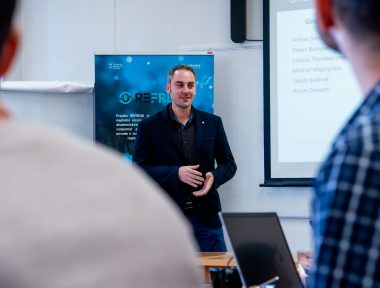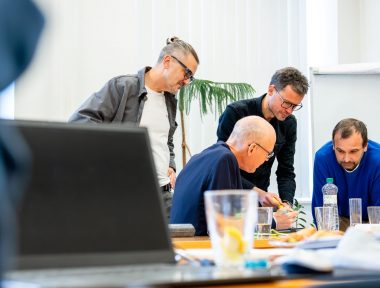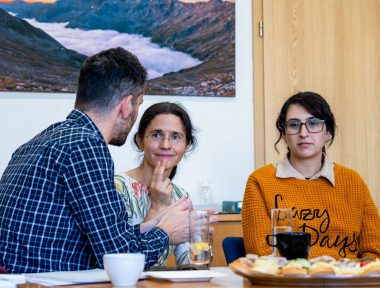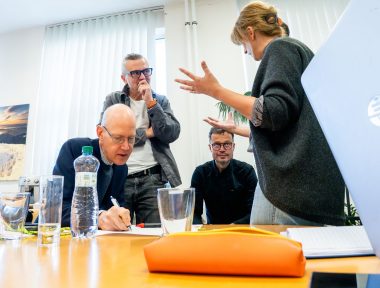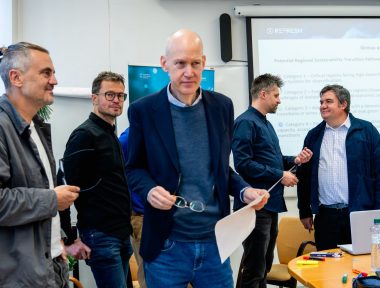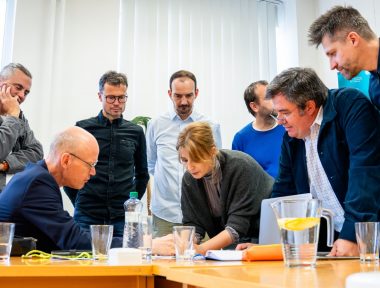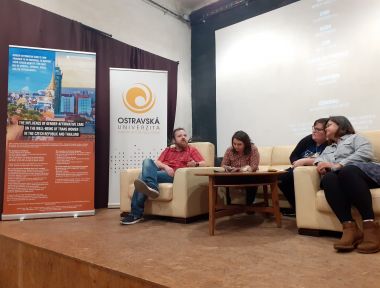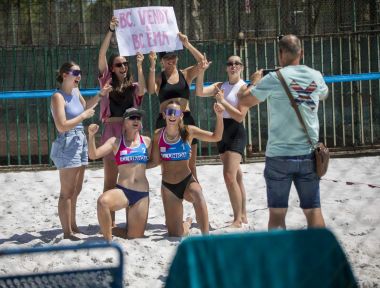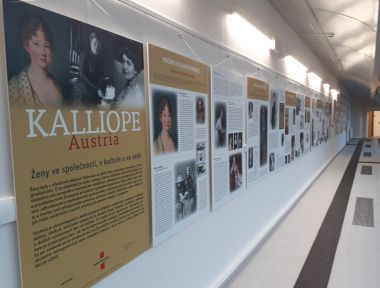The workshop titled “Future Sustainability Transition Pathways for Central and Eastern European Regions,” organized by the Department of Human Geography and Regional Development under the leadership of Petr Rumpel, in cooperation with the Social Lab of the REFRESH project, led by Ondřej Slach.
The organizing team consisted of Petr Rumpel, Suyash Jolly, Sanda Nicola and Martin Bárta. A special thanks to Helena Batihova and Petr Němec for providing support for organizing the workshop. Thanks to generous financial support from the REFRESH project, it was possible to invite more than ten leading international experts from various Central and Eastern European countries and fifteen Czech experts to Ostrava. From Ostrava University, representatives from the Global Experts program, including Marcin Spyra, Salman Qureshi, and Professor Gert-Jan Hospers, also participated in the workshop. Together, they discussed future directions for sustainable regional transformation, emphasizing a participatory approach and the involvement of all participants in finding solutions for the transformation of the Moravian Silesian as well as other Central and Eastern European Regions.
The workshop consisted of different roundtable sessions with international experts: Professor Clara Volintiru, Director Black Sea Trust – German Marshall Fund and Petr Votoupal, European Commission, DG REGIO, Directorate-General Unit F4. Sanda Nicola chaired and coordinated the roundtable sessions with the two experts. The experts provided their insights to the workshop participants regarding the impacts of the COVID-19 pandemic and the Russia-Ukraine conflict on sustainability transitions in the Central and Eastern European regions and the institutional barriers in enabling the benefits of the Just Transition Fund to the most marginalized and vulnerable communities.
Later in the program, the participants took part in group discussions and an activity coordinated by Martin Barta that focused on mapping different regional transition pathways in Central and Eastern Europe. This activity helped participants better understand the diversity of local contexts and priorities, which often vary significantly even within a single region. The workshop concluded with discussions on future research topics and opportunities to further develop the emerging expert network.
International experts from Bulgaria, Romania, Slovenia, Hungary, Poland, Slovakia, and Switzerland attended the workshop, including Paskal Zhelev, Kiril Torchev, Anton Sentić, David Bole, Ernő Molnár, Erika Nagy, Michal Męczyński, Sanda Nicola, Łukasz Trembaczowski, Dušana Dokupilová, and Richard Filčák.
Link to the workshop presentation
Link to the workshop agenda and background information regarding the sessions


 1 min.
1 min. 